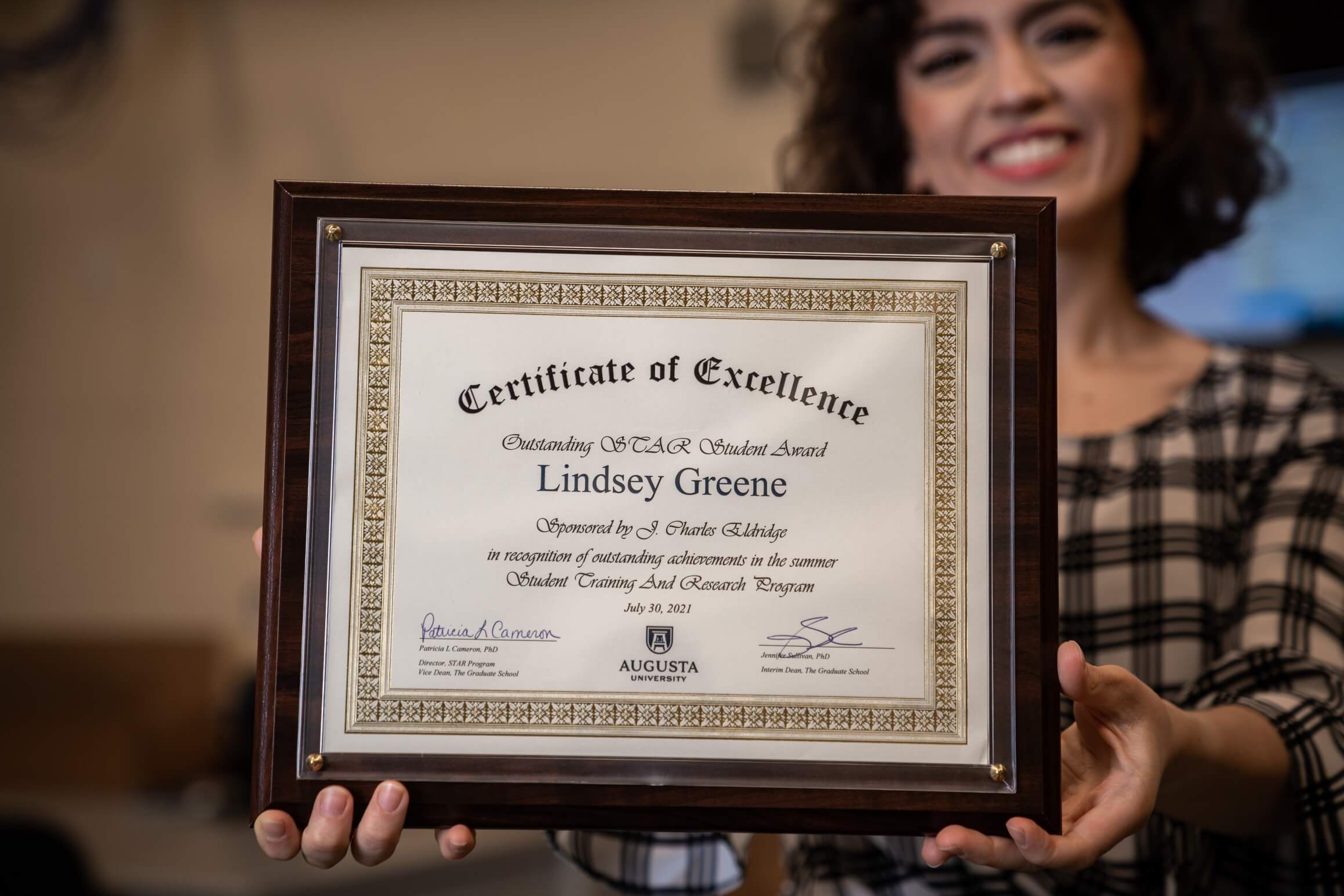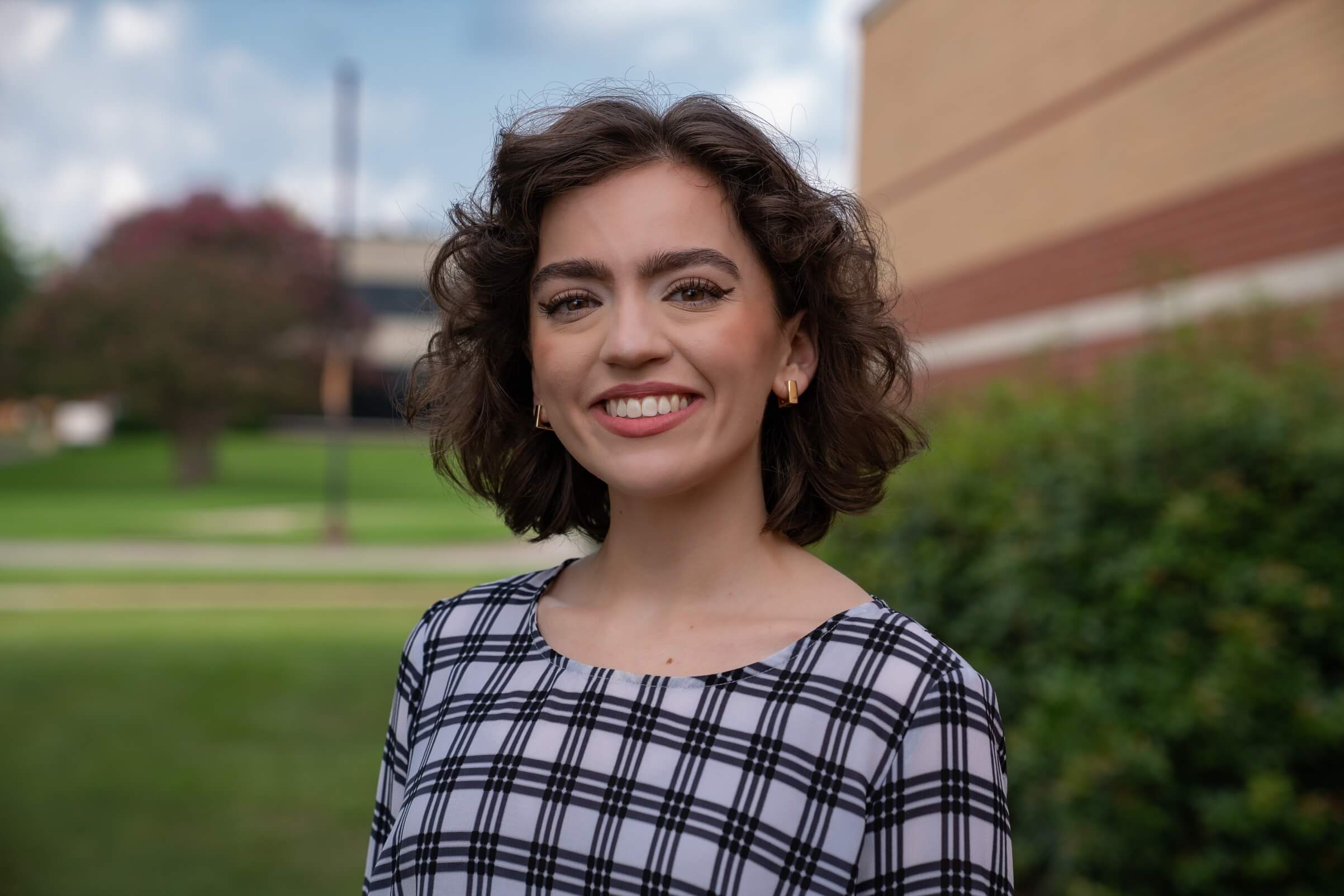This summer, Greene conducted a research titled "HIV-1 Tat protein induces endothelial dysfunction via reduction in adipose tissue mass in a mouse model" for the STAR program at Augusta University in Augusta, Georgia.
Since the age of 8, Greene has seen herself having an influence on the medical field. Initially, she weighed the option of becoming a doctor. However, it was not until her junior year of high school that she came face-to-face with the option of earning her degree in Biomedical Engineering. “[Biomedical Engineering focuses more on] problem-solving. It is more about design and physically creating something that's going to help people live longer and better their lives,” Greene said. “That is much more my style. I like the development and the processing to create something compared to what I thought was going to be more diagnosing and like medicine.”
Greene’s project focused on determining whether the Tat protein was responsible for causing endothelial dysfunction--something that had never been done before.
“This is important because HIV is now treatable with antiretroviral therapies. People are now living [with] HIV. They are living much longer lives, which is fantastic. And they're not developing AIDS,” she said. “But now the number one cause of death is cardiovascular disease. And so looking into that, we wanted to see if Tat would cause endothelial dysfunction, and fuel dysfunction.” To do this, Greene performed surgeries on mice she previously anesthetized. She proceeded to surgically implant micro-osmotic pumps containing Leptin or Tat and performed echocardiograms on the mice. After sacrificing them, she cleaned the fat of approximately 50 mouse aortas off in order to perform myographies on them. Lastly, after four weeks of research, Greene and her team concluded Tat has no direct effect to cause dysfunction.
Greene, originally from Evans, GA, praises the education she has received at LeTourneau for the mindset she has developed, as well as the training she has received, which have ultimately filled her with a strong sense of conviction.
“Being a student at LeTourneau has provided me with a variety of opportunities to be involved in leadership and research here, which I think Augusta University saw and valued,” she said. “I've been able to develop those critical thinking, leadership, and communication skills that set me up for success in another academic research environment.” Greene was quick to praise the Biomedical Engineering department for their “excellent job at helping its students branch out and try other engineering courses.” She believes this approach makes students “well-rounded and better equipped when given a challenge in an area they’ve yet to study.”
When it comes to the challenges Greene faced during her research, she emphasizes an initial lack of experience in Biology sciences work and research made her momentarily doubt. Nonetheless, as she dived deep into the material she had to go through, she quickly found her way with ease and overcame the learning curve.
She attributes her coming to LeTourneau University not only to her academic and professional goals, but also to God’s guidance. “I chose to come to LETU after searching for a Christian engineering school with an excellent Biomedical Engineering program. A google search led me to find out about LETU and I applied,” she said. “The Heritage Competition Scholarship brought me to campus in January 2018 and it was then that God confirmed this was the place I was supposed to be through a series of some wild God-coincidence-type moments.”
Greene attests to the impact being recognized for her work during the STAR program has had on both her faith and approach to work.
“This has been a blessing and a reminder of both God’s provision and that you do reap what you sow. I try to approach my work seeking to do the very best and to learn as much as I can,” she said. “Taking that work ethic into AU and having it recognized and rewarded by the end of the program was a blessing.”
Additionally, Greene secured a paid position working in Dr. Eric Belin de Chantemele’s lab for the upcoming winter break.

